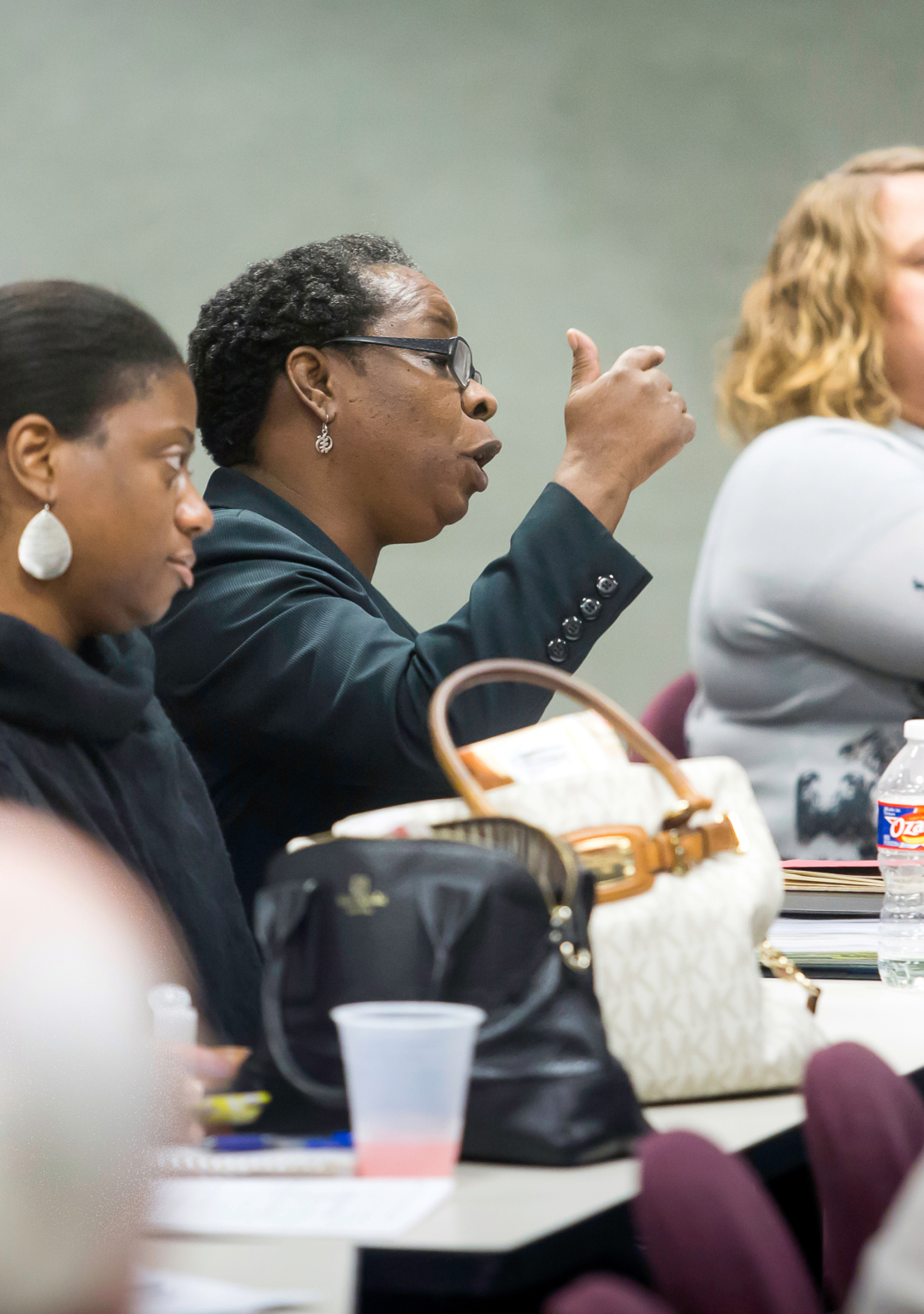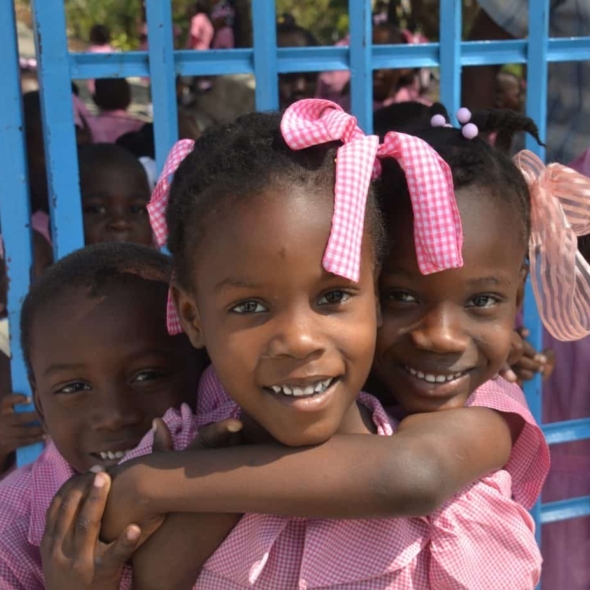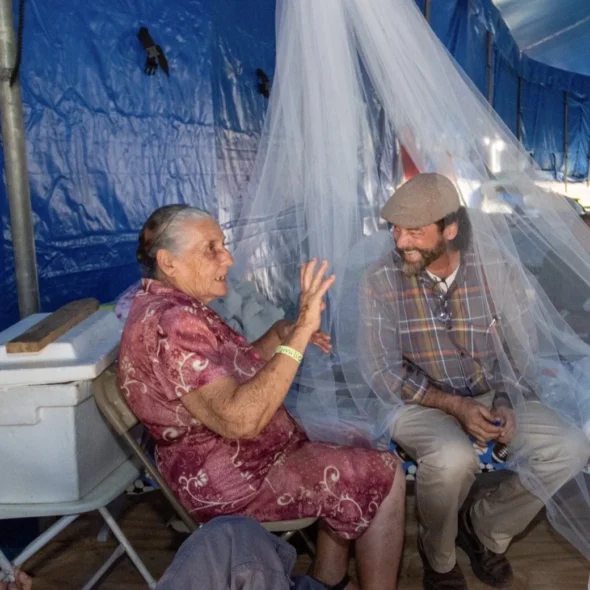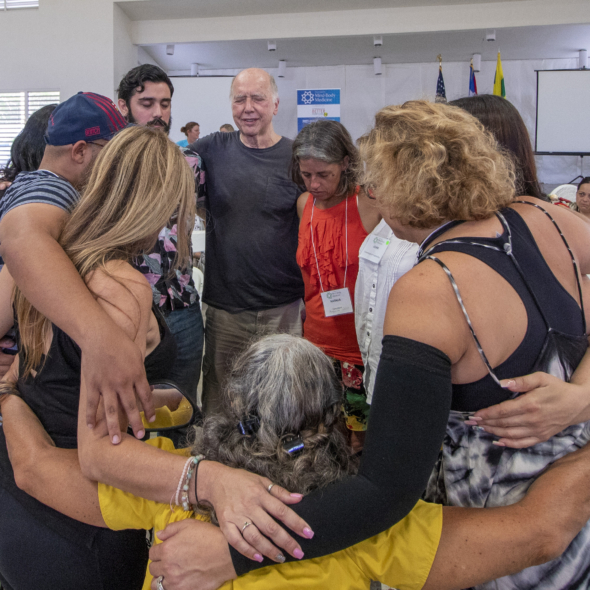
Baton Rouge Initiative
Since 2019, we’ve collaborated with the Baton Rouge Children’s Advocacy Center (BRCAC), the Mayor’s Office, the Baton Rouge Area Foundation, and other community organizations to bring trauma-healing and resilience-building tools to thousands of children and adults in Baton Rouge, LA, a community challenged by racial and economic division, as well as climate-related disasters.
The traumatic events of 2016—the Great Flood, the police shooting of Alton Sterling, the ambush of police officers and subsequent civil unrest—added significant strain on a community already facing enormous challenges due to high levels of poverty and racial tension. Local healthcare systems were also overwhelmed not only by the community’s dire need for psychological support, but also by the COVID-19 pandemic.
CMBM Faculty Toni Bankston, LCSW, BACS, recognized the need for an intervention to overcome Baton Rouge’s systemic issues. In 2019 and 2020, CMBM partnered with the Baton Rouge Children’s Advocacy Center (BRCAC), the Mayor’s Office, the Baton Rouge Area Foundation, the Pennington Foundation, the Wilson Foundation, and other local partners to design and launch a culturally-conscious initiative that would effectively introduce CMBM’s evidence-based model of trauma relief and resilience building to high-need communities across Baton Rouge. These efforts expanded upon fifteen years of grassroots mind-body medicine programming, outreach, and engagement that began in the aftermath of Hurricane Katrina.
Today, we continue to bring CMBM’s transformational model to Baton Rouge. We’ve helped integrate mind-body techniques into schools, summer camps, rehabilitation hospitals, public and private mental health facilities, and law enforcement and other government agencies. CMBM Faculty Toni Bankston has brought community activists and police officers together to begin overcoming their differences in workshops. We’ve responded to changes in the community since COVID-19, shifting our in-person trainings to an online platform to make our model more accessible to the most vulnerable families in the community. Despite changes in leadership within key organizations, agencies, and schools, we’ve stayed true to the original vision of our initiative—supporting people through difficult times with mind-body medicine and human-centered interaction.
Impact
CMBM and our local partners remain committed to the full implementation of the originally proposed initiative. Since the initiative launched, over 500 Baton Rouge residents, school leaders, law enforcement personnel, clergy, social workers, and nonprofit and government agency staff have participated in CMBM’s community workshops. We’ve documented statistically-significant decreases in levels of stress and depression, and improvements in burnout, compassion fatigue, and secondary trauma.
Members of the Baton Rouge community have also helped to expand the scope of our program by advocating for the work within their institutions. Lt. Elvin Howard, Chief of Mayor’s Security and the Baton Rouge Police Department, participated in our Professional Training Program and shared with other BRPD officers the value of our work. CMBM Faculty Toni Bankston has also led mind-body medicine workshops with BRPD officers and law enforcement in surrounding parishes.
I work at a physical rehabilitation hospital in Baton Rouge. I see patients for a variety of illnesses and injuries (e.g., amputation, spinal cord injury, and stroke). The Center for Mind-Body Medicine did a great job explaining trauma, and its effects on the body that has been quite understandable for my patients. I use the skills weekly to help patients find peace in their often chaotic and confusing world following life-changing medical conditions.
Testimonials from Baton Rouge demonstrate our model’s ability to provide relief, increase hopefulness, and improve community connections between those who have participated. At the end of the first Professional Training Program, 96% of the participants in Baton Rouge indicated that they both would recommend the training to others and planned on attending the Advanced Training Program. There are also more than 13 Mind-Body Skills Groups running in Baton Rouge, a testament to the community’s desire to heal and connect.
The mental health needs of the Baton Rouge community have increased since the start of this initiative due to the added challenges of COVID-19. With intentional planning and adaptation, CMBM and our local partners have successfully sustained the initiative’s momentum in a way that is sensitive to local challenges and the shifting needs of the cohort.
To learn more about our efforts in Baton Rouge, sign up for program updates here.


